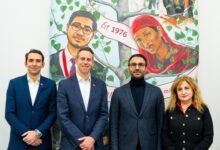Skills development key to achieve Ghana Beyond Aid

Professor Kwadwo Adinkra-Appiah, the Vice-Chancellor of the Sunyani Technical University, has said there is the need for extensive skills development of the workforce in the effort to attain the objectives of Ghana Beyond Aid.
He said there is the need to develop all the three aspects of education- developing fully the knowledge, skills and attitudinal dimensions across all stages of education.
Prof Adinkra-Appiah said this during a panel discussion on the topic: ‘Ghana Beyond Aid: Human Capital Development, Research and Innovation’ as part of the 71st Annual New Year School and Conference (ANYSC).
The New Year School was introduced in 1948 by the School of Continuing and Distance Education of the College of Education, University of Ghana.
It aims at bringing together people from all walks of life to deliberate on topical issues of national and international interest with speakers drawn from both academia and industry.
The three-day event is being held under the theme: ‘Attaining Ghana Beyond Aid: Prospects and challenges’, and is scheduled to end on Thursday January 16.
Prof Adinkra-Appiah said over the years, the country has done quite well in the cognitive sector- which is knowledge acquisition- without taking much interest in the skills acquisition and attitudinal learning, hence the need to ensure a balance to make the vision of Ghana Beyond Aid a reality.
He said the country could not achieve the much touted Ghana Beyond Aid goal if the extensive skills development need was ignored. He urged industry to contribute their quota towards the development of the skills needed by allowing students to undertake internships in their companies to learn while in schools.
The Vice-Chancellor said the world was moving at a very fast pace and Ghana must join the race by deliberately developing the Science, Technical, Engineering and Mathematics (STEM) education.
Prof George Oduro, former Pro Vice-Chancellor of the University of Cape Coast, said there is the need to deliberately develop and make available human capital through research, noting that university research is critical in informing policy in that direction.
“And that is why economies that are doing well prefer to spend high percentages of their Gross Domestic Product on research and development – South Korea spends 4.29 per cent; Japan, 3.47 per cent; China, 2.19 per cent of their GDP on research development compared to the 0.4 per cent that Ghana spends,” Prof Oduro said.
He said the pivot around which human capital development evolves is quality education, adding that without quality education, the human capital could not be improved.
He said there is the need for the country to move away from viewing education as a signaling device (focused only on knowledge acquisition) to a human capital formation perspective.
Madam Titi Yakubu, the Executive Director of Development Exchange Centre, a Nigerian non-governmental organisation, said there is the need for every entity to focus on innovating and digitally transforming its activities for progressiveness and sustainability.
She said talent management and succession planning are key components that should be embraced by industry and organisations that seek to move ahead and sustain itself.
Madam Yakubu said there is the need to create an enabling environment to facilitate learning and knowledge acquisition for employers in every organisation.
The Ghana Beyond Aid is a bold pronouncement by President Nana Addo Dankwa Akufo-Addo to create a nation that is self-sufficient and prosperous through prudent management of resources, the rule of law, promotion and respect for human rights as well as principles of democratic accountability.






